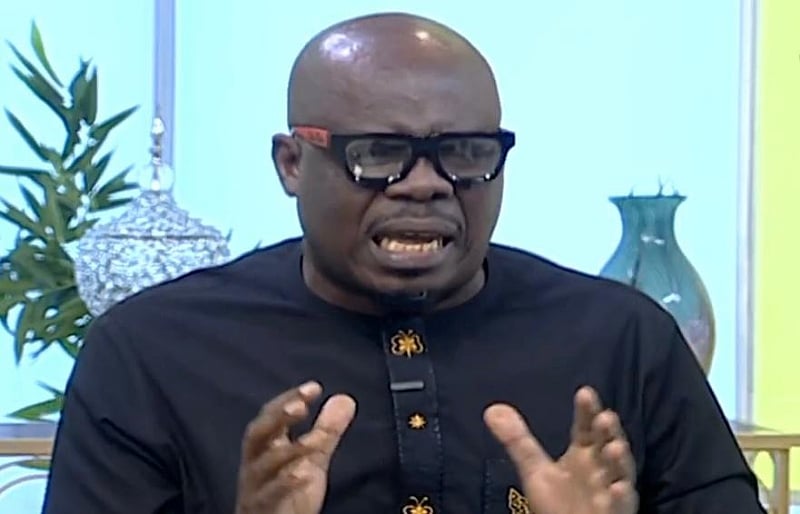The political landscape in Ghana is bracing for a significant shift as Ebo Buckman, a prominent figure in the Movement for Change, predicts a two-horse race between the National Democratic Congress (NDC) and a yet-to-be-formed party stemming from the Movement for Change, effectively sidelining the New Patriotic Party (NPP) in the 2028 general elections. Buckman, speaking with conviction, bases his assertion on the perceived failures of the current NPP administration led by President Akufo-Addo and Vice President Bawumia, coupled with the anticipated emergence of Alan Kyerematen, leader of the Movement for Change, as a formidable political force. This projection signals a potential realignment of political allegiances, driven by disillusionment with the incumbent government and the search for a fresh alternative.
Buckman’s confidence in the Movement for Change’s prospects rests on the belief that the NPP’s performance over the past eight years has severely eroded public trust and rendered them unelectable. He argues that the Akufo-Addo-Bawumia administration has left a legacy of mismanagement and unfulfilled promises, making it virtually impossible for the NPP to regain the confidence of the electorate in the next election cycle. Furthermore, he emphasizes the perceived disconnect between Vice President Bawumia’s self-proclaimed success and the overall perceived failure of the administration, highlighting the inherent contradiction in claiming individual triumph within a collectively underperforming government. This criticism targets the core of the NPP’s leadership, questioning its ability to deliver on its mandate and casting doubt on its future prospects.
Central to Buckman’s prediction is the anticipation of Alan Kyerematen’s emergence as a leading contender in the 2028 elections. Buckman positions Kyerematen as a superior alternative to the other potential NPP flagbearers, emphasizing his character, competence, and credibility. He projects a scenario where Kyerematen’s leadership, combined with the widespread dissatisfaction with the NPP, will lead to a significant exodus of support from the party, effectively fragmenting the NPP’s voter base. This fragmentation is expected to create an opening for the Movement for Change, which intends to transform into a full-fledged political party, to attract disillusioned NPP members seeking a viable alternative.
The Movement for Change’s strategy appears to be centered on capturing the segment of the electorate disenchanted with the traditional political duopoly in Ghana. Buckman emphasizes that the 2028 election will not be a contest of party loyalty but a referendum on competence, character, and credibility – qualities he believes Kyerematen embodies and the NPP, as a whole, currently lacks. This approach aims to transcend traditional party lines and appeal to voters who prioritize effective governance over party affiliation. By presenting Kyerematen as a leader possessing these desired attributes, the Movement for Change seeks to position itself as the party of the future, attracting voters from across the political spectrum.
The assertion that the NPP has no chance in the 2028 election is a bold statement that reflects a growing sentiment of discontent with the current administration. Buckman’s confidence in this prediction stems from a combination of factors, including the perceived failures of the NPP government, the anticipated emergence of Alan Kyerematen as a prominent political figure, and the Movement for Change’s strategic positioning as a credible alternative. Whether this prediction will materialize remains to be seen, but it undoubtedly introduces an element of uncertainty and anticipation into the Ghanaian political landscape. The 2028 elections, as envisioned by Buckman, promise to be a pivotal moment in Ghanaian politics, potentially reshaping the power dynamics and ushering in a new era of political competition.
The unfolding political narrative in Ghana underscores the importance of performance and public perception in shaping electoral outcomes. Buckman’s pronouncements serve not only as a prediction but also as a critique of the current political order, highlighting the need for leaders who embody the qualities of competence, character, and credibility. The Movement for Change, by positioning itself as a champion of these values, seeks to capitalize on the perceived shortcomings of the established parties and offer a new path forward for Ghana. The 2028 elections will ultimately determine whether this vision resonates with the electorate and whether a new political force can disrupt the existing power dynamics. The contest, as framed by Buckman, will be less about party colors and more about the substance of leadership and the promise of a better future for Ghana.














